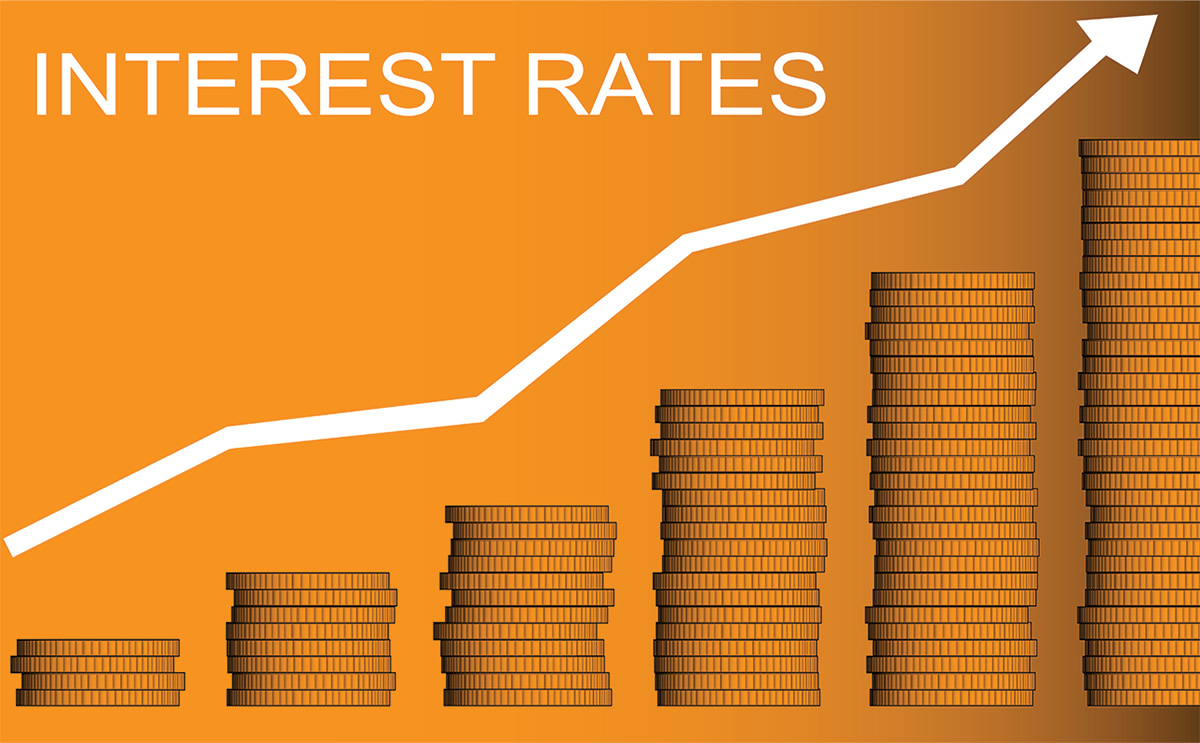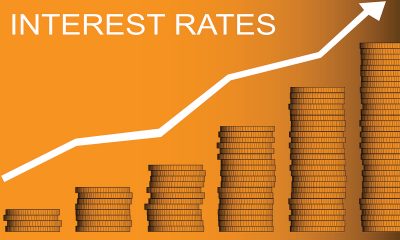Real Estate
Why picking the wrong agent can cost you money
There are many kinds of Realtors so be sure to find the right one

 Let’s face it, Realtors are portrayed pretty poorly in the media – typically as either a ditzy single mom, a pushy used car salesman type, or someone totally aloof in their own world (I’m looking at you, Phil Dunphy). These stereotypes used to really bother me, because they didn’t reflect the hard-working, dedicated professionals that I typically encounter. We work with some truly excellent agents that make me proud to be a Realtor.
Let’s face it, Realtors are portrayed pretty poorly in the media – typically as either a ditzy single mom, a pushy used car salesman type, or someone totally aloof in their own world (I’m looking at you, Phil Dunphy). These stereotypes used to really bother me, because they didn’t reflect the hard-working, dedicated professionals that I typically encounter. We work with some truly excellent agents that make me proud to be a Realtor.
In the last few weeks, the spring market has really started to heat up. Many newly minted “agents” are throwing their hat into the ring to make, what they think, is a quick buck. As a result, we’ve encountered some very interesting situations. Maybe it’s just that I am nine months pregnant and my patience is wearing thin, but I felt the need to educate the public on how picking the wrong agent can cost you. Here is a breakdown of some of the types of agents – and real life encounters we’ve had with them – that are the reason for our embarrassing portrayal in the media. So, please excuse me while I rant.
THE HARD-WORKING, COMPETENT AGENT. As I mentioned above, there are many, many excellent agents out there who go above and beyond for their clients and do a truly fabulous job. While most agents we deal with fall into this category, and I could go on and on about all of the wonderful aspects of those agents, this post is not about those Realtors.
THE LAZY AGENT. This type of agent is probably the most common offender in our profession. They got into real estate because it offered flexibility and they figured they didn’t have to work a 9-5 schedule. Turns out, they were right. Real estate is not 9-5, it is 24/7! As agents, we are available when our clients need us, when other agents need us, when appraisers need us, and when home inspectors are available. We not only must be available 9-5 for the banks and title companies we work with during the work week, but also when our clients are available — usually on the weekends and in the evenings.
Agents who thought they were in for a cushy schedule get a rude awakening. Most eventually adapt to their new “flexible” schedule. However, there are those that cut corners to stay in the industry and try to make it work – to the detriment of their clients and anyone trying to do business with those clients.
Frequently, this type of agent also doesn’t respond to questions or if they do, it takes them hours and the information is incomplete. They usually don’t respond on weekends or evenings and if they get back to you, they act as if it is an inconvenience. This sort of response can cause many buyers to simply move on if they are not getting the information quickly enough or are not satisfied with the information do receive. It’s the spring market — there are lots of listings and many of them have deadlines so buyers need to make quick decisions. Many buyers just say… “Next!”
THE PART-TIME AGENT. On the exact opposite end of the spectrum, there are many agents out there selling real estate “on the side.” They may just work part-time, or it could mean they have a full-time job and they sell real estate only on weekends and evenings. So, they are far from lazy and are often working very hard, but they can be tough to reach and often don’t know the ins and outs of the contract and general “norms” of the industry.
We aren’t knocking people trying to get started in the industry. It’s a tough job to get into as you often don’t get paid for several months (fun fact – we only get paid after a client goes to settlement – so by the time a new agent gets a client, finds them a property or a buyer for their home and then goes to settlement, it’s often six months before the agent gets a check for their work.)
I can understand that many people need to pay their bills. What I cannot understand is agents who will not answer their phones or emails from 9-5. It is completely unacceptable and an enormous disservice to their clients. If you have a listing and someone wants to show it, taking eight hours to get back to that agent might mean the buyers moved on to another property. That means a seller may have missed out on their buyer. If you’re a buyer, same deal. You might have just lost the opportunity to see a hot new listing that could now be under contract.
THE INSINCERE AGENT. Worse than the lazy agent is the insincere agent. Luckily, we don’t come across this type of agent very often. The insincere agent will tell you there is another offer on a property to try to get your clients to improve their offer when in reality, the other offer doesn’t exist. Or, they might selectively choose which of your questions to answer, not replying to you if they answer is something you won’t like. We reserve most of our venom for this type of agent.
THE NON-REALTOR AGENT. Most people don’t know there is a difference between a Realtor and a real estate agent. All Realtors are real estate agents but not all real estate agents are Realtors. Being a Realtor is an additional certification or membership that a real estate agent can obtain. Becoming a Realtor means that, among other things, you must adhere to the Realtors’ code of ethics. This is an important differentiating factor because it holds Realtors responsible for not lying to their clients or fellow agents. If they do, they could be fined and put their license in jeopardy.
THE INEXPERIENCED OR JUST FLAT OUT BAD AGENT. While this type of agent isn’t devious and is often well-meaning, it can be one of the most dangerous types of agents to work with as a client. The problem is – they don’t know what they don’t know. Even worse, their clients usually don’t know what their agent doesn’t know.
We once had an agent tell us that she and her client are not currently on speaking terms so she couldn’t get back to us on our offer. I mean, where to even begin!? Long story short, we moved on. That house is still on the market and to be honest, I would be shocked if it sold anytime soon.
Another agent recently told us proudly that they will turn away any offer that is not full price. This property was priced significantly higher than the comps. It, too, is still on the market. Granted, this agent’s client should take a lot of the blame for this, but the agent shouldn’t get a free pass.
Part of our job as Realtors is to educate our clients into the appropriate pricing for the property and at least encourage a “conversation” between buyer and seller through counter-offering.
Even if an offer starts out low, many times the seller can still get the buyer up to a price that is acceptable with a few rounds of countering The fact is, once a buyer is mentally invested in a property, they often will come up higher than they originally anticipated. But, you won’t know this as a seller unless you engage them with a counter. It is highly ill advised to reject any offer, no matter how low it is. We had a listing where the original offer was over $100,000 under the list price – we ended up ratifying a contract on the property at a price that was significantly higher than the first offer and perfectly acceptable to both buyer and seller.
Sometimes, the agent doesn’t even know how to put together an offer and we’ve had to draft the offer for their client – or re-write it completely. An agent who recently wrote an offer on one of our listings did not know he needed to include a certain contingency that his client definitely required. We nicely let him know that he probably meant to include it. Omitting this contingency could have been a major issue for his client.
Another example of how an inexperienced agent can blow a deal is by not understanding the “norms” of how an offer process works or not taking the time to find out how an agent is handling a multiple offer situation. If the listing agent doesn’t set an appropriate deadline, or doesn’t get back to buyer agents, buyers agents won’t know how to proceed.
As a result, a seller could miss out on additional offers that would have escalated in price, leaving tens of thousands of dollars on the table for the seller.
We had a recent situation where a client was ready to accept a full price offer on their property over the weekend. However, we could tell based on the interest we were getting that by waiting until Monday and setting a deadline time that all agents were made aware of, that they would get more money. By waiting, we were able to get them an additional $30,000 with no home inspection negotiation (saving them from having to make repairs) and no appraisal contingency. Knowing the pulse of the market, we got a much better deal for our client.
Similarly, if a buyer agent doesn’t know enough to let the listing agent know that their clients have interest, they could miss out on the property. Time and again, we’ve had buyer agents call us weeks after our listings go under contract letting us know that their clients were interested, even though they had never been in touch. Inexperienced buyer agents can be detrimental if they don’t know how to find out about properties before they hit the active marker, to pull the appropriate comps, to best present the offer in multiple offer scenarios, or which types of inspections to schedule. There is a lot that an inexperienced agent just doesn’t know.
THE BOTTOM LINE. Picking a real estate agent is a major decision. It can directly affect both your bottom line and your ability to buy or sell a house in the time and manner that works for you. As we’ve shown, there are a wide variety of agents in the business. Most are wonderful to work with, but there are still many – and especially in the spring market – that put their clients in tough situations that could cost them money. Often, the client doesn’t even know it. It’s critical to carefully think through who you are working with to buy or sell.
Allison Goodhart DuShuttle is lead agent for The Goodhart Group, Alexandria’s and McEnearney Associates’ top producing real estate team. In 2015, she was nationally recognized by Realtor Magazine, being named to its “30 Under 30” club. Allison can be reached at 703-362-3221 or [email protected].

Did you melt like the Wicked Witch of the West this week?
As summer temperatures rise, keeping your home or apartment cool during a heat wave can become both a comfort issue and a financial challenge. One of the most effective ways to keep a home cool is to prevent heat from entering in the first place. Sunlight streaming through windows can significantly raise indoor temperatures. Consider the following solutions:
• Close blinds or curtains during the hottest parts of the day. Blackout curtains or thermal drapes can reduce heat gain by up to 30%.
• Install reflective window films to block UV rays and reduce solar heat without sacrificing natural light.
• Use outdoor shading solutions such as awnings (yes, the ones you removed because they were “dated”) and shutters to limit direct sunlight.
Fans are a cost-effective way to circulate air and create a wind-chill effect that makes rooms feel cooler.
• Ceiling fans should rotate counterclockwise in the summer to push cool air down.
• Box fans or oscillating fans can be placed near windows to pull in cooler evening air or push hot air out.
• Create a cross-breeze by opening windows on opposite sides of your home and positioning fans to direct airflow through the space.
• For an extra cooling effect, place a bowl of ice or a frozen water bottle in front of a fan to circulate chilled air.
To optimize natural ventilation, open windows early in the morning or late in the evening when outdoor temperatures drop. This allows cooler air to flow in and helps ventilate heat that built up during the day.
Appliances and electronics generate a surprising amount of heat. To reduce indoor temperatures:
• Avoid using the oven or stove during the day; opt for no-cook meals, microwave cooking, or grilling outside.
• Run heat-producing appliances like dishwashers and clothes dryers in the early morning or late evening.
• Unplug electronics when not in use, as even standby power can add heat to your space.
• Switching to energy-efficient LED lightbulbs can also reduce ambient heat compared to incandescent lighting.
If you do use an air conditioner, maximize its effectiveness by:
• Setting it to a reasonable temperature—around 76–78°F when you’re home and higher when you’re away.
• Cleaning or replacing filters regularly to maintain airflow and efficiency.
• Sealing gaps around doors and windows to prevent cool air from escaping. (Didn’t we all have a parent who said, “Close the door. You’re letting all the cool out?”)
• Using a programmable thermostat to optimize cooling schedules and reduce energy use.
If it is not cost-prohibitive, adding insulation in attics and walls can greatly reduce heat transfer. Solar panels that reflect heat can also help, as well as offset the cost of their installation. Adding weatherstripping around doors and windows, sealing cracks, and using door sweeps can make a significant difference in keeping heat out and cool air in.
Natural and eco-conscious methods can also help cool your home.
• Snake plants, ferns, or rubber trees can improve air quality and slightly cool the air through transpiration.
• White or reflective roof paint can reduce roof temperatures significantly.
• Cooling mats or bedding can make sleeping more comfortable without cranking up the A/C.
For renters or those who can’t make permanent modifications, there are still plenty of ways to keep cool.
• Use portable fans and A/C units instead of built-in systems, making sure they are the correct size for your space.
• Removable window film or static cling tinting can reflect heat without violating your lease.
• Install tension rod curtains or temporary blackout panels instead of hardware-mounted window coverings.
• Add draft blockers and weatherstripping tape that can be applied and removed without damage.
• Cover floors with light-colored rugs to reflect heat rather than absorb it.
• If allowed, use temporary adhesive hooks to hang reflective materials or light-filtering fabrics over windows.
Even if your space is warm, you can still take steps to help your body stay cool.
• Wear light, breathable fabrics like cotton or linen.
• Stay hydrated and avoid caffeine or alcohol during peak heat hours.
• Take cool showers or use damp cloths on your neck and wrists to bring your body temperature down.
Keeping your home or apartment cool in the summer doesn’t have to be expensive or energy-intensive. With a few adjustments such as blocking sunlight, optimizing airflow, using fans effectively, and making renter-friendly upgrades, you can create a more comfortable indoor environment while keeping energy bills in check.
Valerie M. Blake is a licensed Associate Broker in D.C., Maryland, and Virginia with RLAH @properties. Call or text her at 202-246-8602, email her at DCHomeQuest.com, or follow her on Facebook at TheRealst8ofAffairs.
Real Estate
The world’s on fire and D.C. is on sale (sort of)
Prices are up, but then again, nothing makes sense anymore

ICE is disappearing people, revered government agencies are shuttering, and who knows if we’ll be in World War III next week? But can you believe prices in D.C. are actually still up 6.3% since last year? It doesn’t make sense, and perhaps that does make sense, because nothing seems to make any sense any more.
That said, there are some parts of our market that are truly suffering. The interest rates, which have been up, up, up for about four years now, are the ongoing rain on our market’s military parade. Combine that with 75,000 federal employees taking a buyout nationwide, and DOGE cuts eliminating around 40,000 federal jobs in the District (per estimates by the D.C. CFO), not to mention thousands of other job losses in non-governmental organizations due to funding and program cuts, and you’ve got a case of uncertainty, and downright unaffordability in the pool of otherwise would-be buyers.
This has had a marked impact on properties that starter-home buyers and low- to mid-level employees would otherwise buy, most notably condominium and cooperative apartment units. These properties have already slowed in our market thanks to the profound impact that higher interest rates have had on their monthly carrying costs—pair that with job insecurity, and a lot of condos are proving to be very difficult to sell indeed.
So how is the average sale price up in our market?
The increase is almost entirely due to the resounding strength of the single-family home market, especially in upper Northwest D.C., where it is still quite common to see bidding wars, even on properties pushing past the $3M mark. It seems that buyers in that echelon are less impacted by a few percentage points in the interest rate, and less concerned about their job security. Notably, those buyers are often married with children and have an absolute need for more space, must stay in the area due to one spouse’s job, or the kid’s friend group, regardless of whether the cost of owning is thousands of dollars more per month than it would have been in 2020 or 2021. The continued appreciation in these neighborhoods defies imagination.
So, what to do if you are not one of those lucky enough to be shopping for a $3M home? The short answer: wait. If you want more space, rent your current place out and learn the joys of being a landlord while someone else pays your mortgage. Need the equity from your current home to buy your next place? Get a home equity line of credit, or loan, and pull the equity out of your current place to buy the next one. Or—and I have never recommended this before in 21 years of being a Realtor—rent for a few years. Sure, I’d love to list and sell your condo so you can climb the real estate ladder, but it might just be a waste of time, money or both if you could just ride out this storm and sell in a DOGE-less future.
All this said, there are some condos that seem to be immune from this recent negative news. Anecdotally, it feels like it’s the truly special ones that do just fine no matter the market. Our recent listing in Capitol Hill had a view from every one of its 15 windows of the Supreme Court. Sold in five days with six offers. Another condo was on the top two floors of a townhouse and had the coolest black wood floors that gleamed like a grand piano. Sold in four days at full price.
So, all is not for naught if you have a condo or home in an area that people want to be in, with nice space, light, amenities and a certain je ne sais quois. And, as long as we have a democracy in a few years, my experience says our market will be back, stronger than ever, really soon.
David Bediz is a Realtor and mortgage loan broker for the Bediz Group LLC and Home Starts Here, LLC. Reach him at [email protected].
Real Estate
No Rose, your interest rate has nothing to do with how many likes you got on Hinge
Many factors help determine rates these days

Picture it, you’re sitting in the lunchroom at work, and your coworker just bought a house. Another coworker bought one a few months ago and you hear that she got a totally different interest rate than the other one did, even though they both bought houses not that far from each other. Homebuyers everywhere have been wondering what interest rates they are going to get, lately. It’s easy to read an article online or see an ad on social media stating specific numbers, but there may be more than meets the eye going into a particular buyer’s interest rate.
What are the factors that can affect the interest rate a buyer eventually “locks in”?
- Property details – certain properties may be in neighborhoods with higher rates of foreclosure, or there may be specific census tracts that allow a buyer to participate in the “Fannie Mae Home Ready” and “Freddie Mac Home Possible” programs, which carry more flexible requirements such as various income limits and lower interest rates, to help people begin homeownership.
- Type of loan / loan amount– a conventional, conforming loan or a jumbo loan can have differing interest rates, as well as FHA loans.
- Credit score – most people are aware that this affects what interest rate is quoted, just like on a credit card. Some lenders will work with you on ways to improve a credit score if the goal is to buy six, nine, or 12 months from now.
- Lock period – do you want to lock in the rate for 30 days? 45? Market volatility can cause the rates to change so it will cost more money to hold onto a particular interest rate.
- Loan to value ratio – one can still buy a home with less than 20% down, but the rate that is quoted may be higher.
- Occupancy type – is this the primary residence or an investment property?
- Points bought or credits taken – A buyer can pay the lender a fee to buy down the interest rate, or the seller can sometimes offer a credit. This has become more popular in recent years.
- Market conditions – keep an eye on the news – as we are all aware, change is the only constant!
Lender Tina del Casale with Atlantic Union Bank says, “With jumbo fixed rates in the low 6’s, and first-time buyer down payment assistance loans such as DC Open Doors, rates are in the mid 7’s. With the added factors of your income, the address you are purchasing and your credit score factoring into the equation, interest rates are different from buyer to buyer these days. So, skip the online tools and make a few calls because that’s the only way to get an accurate quote these days!”
It might feel like an overwhelming amount of information to take on, but remember, there are people that help others take these big steps every day. A trusted lender and Realtor can guide their clients from start to finish when it comes to purchasing a home. And for that, you’ll be saying, “thank you for being a friend!”
Joseph Hudson is a referral agent with Metro Referrals. Reach him at 703-587-0597 or [email protected].


















